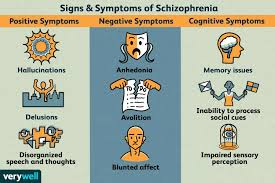The nurse has requested that the client take the food tray back into the kitchen area on the psychiatric unit. The client states, "I don't want to do it because I should be going home any minute now." To avoid a confrontation, the nurse takes the tray into the kitchen for the client. Which type of behavior is the nurse exhibiting?
Negative Operant Conditioning
Positive Role Modeling
Aggressiveness
Assertiveness
The Correct Answer is B
Choice A reason:
Negative Operant Conditioning involves the removal of an unpleasant stimulus to increase the likelihood of a behavior being repeated. In this scenario, the nurse is not removing an unpleasant stimulus but is instead taking over a task to prevent conflict, which does not align with the principles of negative operant conditioning.
Choice B reason:
Positive Role Modeling is demonstrated when an individual exhibits behavior that is beneficial and can be emulated by others. By taking the tray to avoid conflict, the nurse is showing understanding and flexibility, qualities that are positive and can be modeled in a healthcare setting.
Choice C reason:
Aggressiveness is characterized by hostile or forceful behavior or attitudes. The nurse's action of taking the tray to the kitchen is not aggressive; it is a non-confrontational approach to managing the situation.
Choice D reason:
Assertiveness involves standing up for one's own rights in a direct, honest way, while also respecting the rights of others. The nurse's behavior is not assertive, as they are not addressing the client's refusal directly but are instead choosing to complete the task themselves to avoid confrontation.
Nursing Test Bank
Naxlex Comprehensive Predictor Exams
Related Questions
Correct Answer is ["B","C","D","E"]
Explanation
Choice A Reason:
Schizophrenia cannot be cured with antidepressants. Antidepressants may be used to treat comorbid depression in individuals with schizophrenia, but they do not address the core symptoms of schizophrenia itself. Schizophrenia is a chronic condition that typically requires lifelong treatment with antipsychotic medications to manage symptoms.
Choice B Reason:
Schizophrenia typically first presents in adolescence or early adulthood. This is the period when symptoms such as hallucinations, delusions, and disorganized thinking often first become apparent. The onset of schizophrenia during this developmental stage can significantly impact an individual's social and vocational abilities.
Choice C Reason:
Antipsychotic medications are the cornerstone of schizophrenia treatment. They can be used to manage symptoms of hallucinations and delusions, which are known as positive symptoms of schizophrenia. These medications work by affecting neurotransmitters in the brain, particularly dopamine.
Choice D Reason:
Individuals with schizophrenia have a higher risk of substance abuse disorders. Substance use can exacerbate symptoms of schizophrenia and complicate the course of the illness. It is important for treatment plans to address any co-occurring substance use disorders.
Choice E Reason:
Schizophrenia significantly affects thoughts and perceptions. It can cause distorted thinking patterns, false beliefs, and sensory experiences that others do not share. These symptoms can be distressing and may lead to difficulties in distinguishing reality.

Correct Answer is D
Explanation
Choice A Reason:
Directly telling a client that their delusions are not real is not typically recommended. This approach can be confrontational and may lead to increased anxiety or agitation in the client. It's important to maintain a therapeutic relationship by validating the client's feelings and working within their current reality, rather than directly challenging their perceptions.
Choice B Reason:
Using frequent touch to provide support may not be appropriate for all clients, especially those with schizophrenia who may have altered perceptions of reality. Some individuals may find touch comforting, while others may perceive it as threatening or invasive. It's crucial to assess each client's comfort level with physical contact and proceed accordingly.
Choice C Reason:
Placing a client in seclusion can be a traumatic experience and is generally considered a last resort when other interventions have failed and the client is a danger to themselves or others. Seclusion should not be used solely because a client is experiencing visual hallucinations.
Choice D Reason:
Limiting the number of questions during assessments can help reduce the potential for overwhelming the client. Clients with schizophrenia may have difficulty processing too much information at once, and a barrage of questions can be stressful. Simplifying communication and allowing the client to focus on one question at a time can be more effective.
Whether you are a student looking to ace your exams or a practicing nurse seeking to enhance your expertise , our nursing education contents will empower you with the confidence and competence to make a difference in the lives of patients and become a respected leader in the healthcare field.
Visit Naxlex, invest in your future and unlock endless possibilities with our unparalleled nursing education contents today
Report Wrong Answer on the Current Question
Do you disagree with the answer? If yes, what is your expected answer? Explain.
Kindly be descriptive with the issue you are facing.
